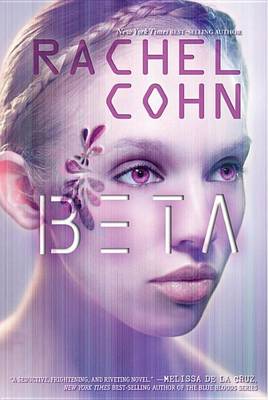Reviewed by Briana @ Pages Unbound on
Of course, the point of the plot is Elysia’s development of human-like emotions and thought-processes, and her voice changes appropriately as the novel progresses. She becomes more rounded, but I hesitate to say she becomes more likeable. Elysia would probably describe her new self as confident and rebellious, fighting against the injustice of clone servitude. Personally, I found her unpleasant and bordering on violent. Maybe it is due to all the teenage hormones all the characters are always talking about. Or perhaps it is her clone wiring acting up. At this point in the series, there is no way to tell. In future books, I hope Elysia finds ways to control her anger, or I will have difficulty accepting her as a leader and symbol of a righteous rebellion.
Elysia’s newfound emotions also lead her into a love affair. Unfortunately, she experiences instalove and appears drawn to her man based on a combination of lust and a feeling that they ought to be together because they are in integral ways alike. (She does throw in a line about how he has a number of great qualities, like kindness and honesty, which is true but does not seem to play a pivotal role in their relationship.) Later, a love triangle (square?) pops up, and the attraction there is similarly based on something other than true love or respect.
Despite the evident flaws of the book, I was pretty much on board with it until the climax. It has an original concept, an inhuman character that actually sounds inhuman (I am still impressed by this), and a luxurious setting that is part tropical paradise and part futuristic dream. All of this is undeniably cool. However, at the climax, things go seriously wonky. A sizable number of the main characters become psychotic with a smidgen of motivation/foreshadowing but not nearly enough to justify their actions. In a few pages, nearly the last pages, the pace goes from moderate to breakneck as things just go down. This is not exciting; it makes the book feel unbalanced. At just the place the book is supposed to be winding down, new characters, plots, and romances are revealed one after another. There is no time to explore them; they are obviously just set-up for book two, but it is all so overwhelming and seems very last-minute. The last fifty pages led me to stop debating between three or four stars on Goodreads and start debating between two and three.
Beta is sci-fi light with a contemporary feel that will appeal to fans of Eve and Adam and What’s Left of Me. It has a unique concept which is moderately well but not excellently executed. I recommend it to readers already invested in the science fiction genre or the cloning concept.
Content Note: This book features frequent drug use, nudity, rape, and pregnancy. In some cases, they are meant to serve as plot points, but they are not well-handled (i.e. they are not really discussed). They are passing moments that simply lead to other moments in the plot.
Reading updates
- Started reading
- 7 August, 2013: Finished reading
- 7 August, 2013: Reviewed
